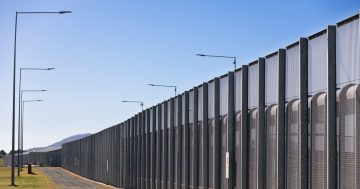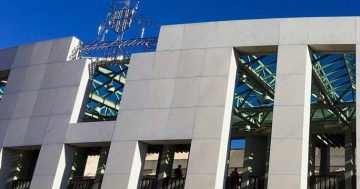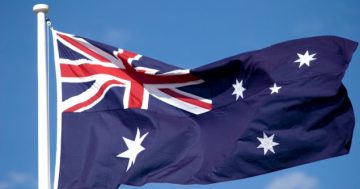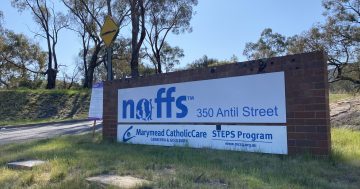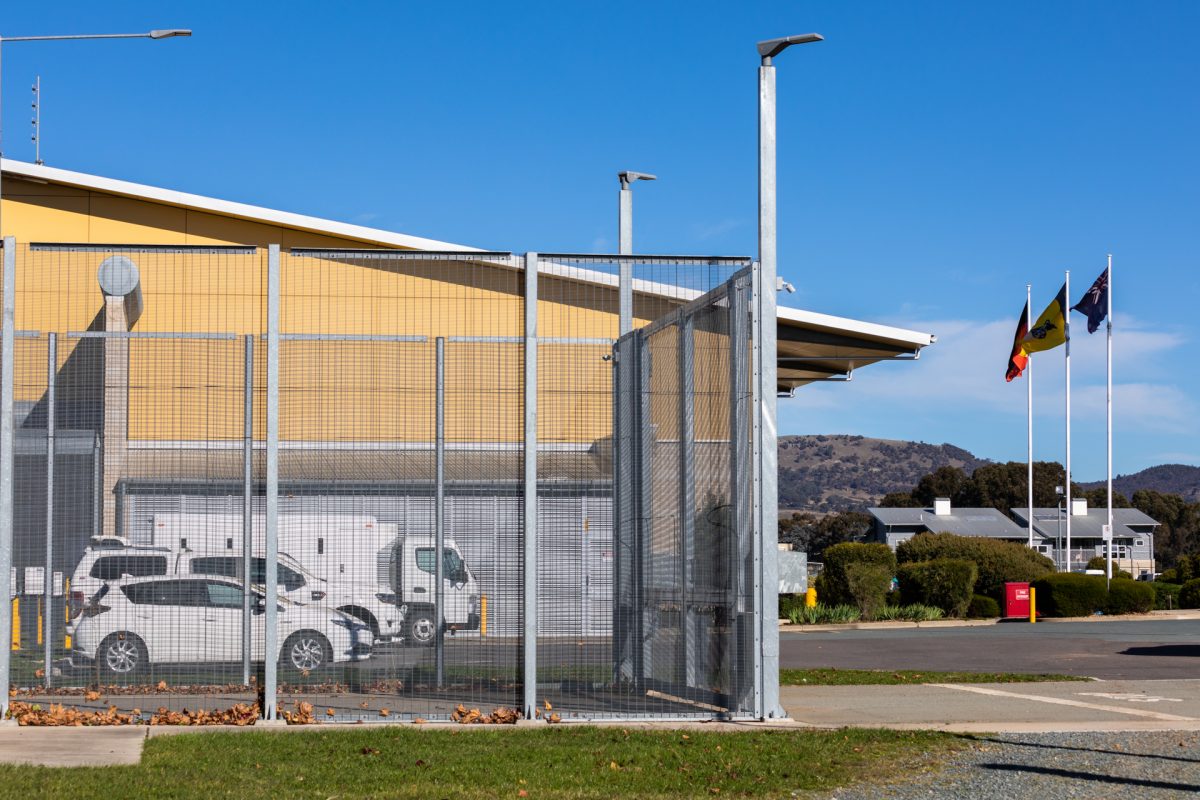
First Nations people represent about 26 per cent of prisoners in Canberra’s Alexander Maconochie Centre, according to data from 2021-22. Photo: Michelle Kroll.
The ACT Government has been accused of going into “panic mode” off the back of the announcement there will be an independent review into how the Territory has been addressing the over-representation of First Nations people in its justice system.
Winnunga Nimmityjah Aboriginal Health and Community Services CEO Julie Tongs said she “hadn’t heard anything” from relevant ministers in this space since 2021, when the community began calling for a Royal Commission-style inquiry into the ACT’s justice system.
So she was shocked when she heard the ACT Government was commissioning an independent review into its progress in delivering the recommendations from the Australian Law Reform Commission’s (ALRC) report Pathways to Justice – Inquiry into the Incarceration Rate of Aboriginal and Torres Strait Islander Peoples, published in 2018.
“I was surprised when I received a letter from the Justice and Community Services Departmental officer on Thursday [1 June] informing me [about the review] and requesting a meeting with the Aboriginal leaders that attended a meeting at Winnunga in 2021,” Ms Tongs said.
Ms Tongs was sceptical about why this review had to be announced now, saying it appeared the timeline for the report to be delivered aligned with the government wanting to highlight its engagement in the Justice Policy Partnership under the National Agreement on Closing the Gap.
“I suspect they have gone into panic mode because they have done nothing,” she said.
“The overall system in the ACT is failing First Nations people at all levels of government, and now there is a requirement to do something or miss an opportunity for federal funding.
“It wouldn’t be the first time.”
Ms Tongs doesn’t know how many of the ALRC’s recommendations can be applied to the Territory, and which relevant ones have been implemented in the past five years. But she felt there were “no political champions” for prison reform in the ACT.
“If there were, we wouldn’t have a prison where rehabilitation, education and industry are non-existent,” she said.
“I’m not sure how the politicians or the government officials will go if and when we have a truth-telling commission here in the ACT.”
Ms Tongs said Aboriginal voices needed to be part of the independent review team, particularly a local Indigenous lawyer who understood the Territory’s legal system and the Human Rights Act 2004.
However she said nothing would change – review or no review – until poverty, homelessness and “systemic racism” were addressed in Canberra.
“We want action and we want the government to tell us how they are going to implement the recommendations from the umpteenth reports, reviews and evaluations that have already been done,” she said.
“We definitely need proper mental health facilities and First Nations-specific drug and alcohol rehabilitation facilities/services.”
Corrections Minister Mick Gentleman recently informed the Legislative Assembly that the First Nations average daily prisoner count at the Alexander Maconochie Centre (AMC) for the 2021-22 financial year was “stable” and the lowest it had been in raw numbers since 2016-17.
“In 2021-22, the average daily number of detainees in the ACT was 389, with 101 First Nation detainees,” he said.
“Approximately two per cent of the Territory’s population are Aboriginal and Torres Strait Islander people, but in 2021-22 Aboriginal and Torres Strait Islander people made up approximately 26 per cent of the AMC prison population.”
Drawing on data from the Report on Government Services (ROGS), the ACT has the third lowest rate in Australia for imprisonment numbers when adjusted for population changes to per 100,000 adults.
Mr Gentleman also pointed out the ACT had the highest percentage of First Nations people –79 per cent – who had “successfully” completed community corrections orders.
There have also been some negative increases.
The proportion of Aboriginal and Torres Strait Islander people released and returned to prison with a new sentence within two years increased from 44 per cent (59 of 134 detainees) in 2020-21 to 47.2 per cent (50 of 106 detainees) in 2021-22.
However this was a lower return rate than the national figure of 54.4 per cent.
The proportion of Aboriginal and Torres Strait Islander people released from prison who returned to corrective services with a new correctional custodial or community sentence within two years increased from 67.9 per cent (91 of 134 detainees) in 2020-21 to 77.4 (82 of 106 detainees) in 2021-22.
This return rate was higher than the national figure of 62.9 per cent, and the second highest return rate in the country for First Nations people behind NSW.
“There is no doubt the level of over-representation of First Nations people in the ACT justice system is unacceptable, with the imprisonment ratio per 100,000 population indicating much higher proportional rates in comparison to the non-Indigenous population,” Mr Gentleman said.
“The government is committed to addressing the over-representation of First Nations people in the criminal justice system as a matter of priority.”
A statement from the ACT Government outlined an independent consultant would review progress on the 2018 recommendations. It is also expected to recommend further measures to have an “appreciable impact” on the over-representation rates and the experience of First Nations people who interact with the ACT’s justice system.
An interim report is expected to be delivered by March 2024, with a final report completed in late 2024.
This will allow the government to provide an initial response in the context of the 2024-25 Budget.
The 2022-23 Budget delivered $11 million in programs and initiatives focused on addressing these issues.














